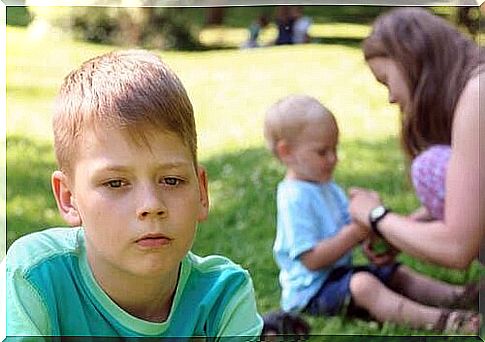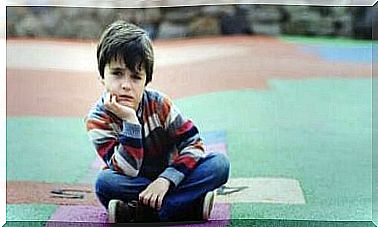The Importance Of Avoiding Confrontations Between Siblings

Avoiding confrontations between siblings is a fundamental principle in educating children. Unfortunately, however, parents often do this, both within the family and by comparing their child with other children at school or at the sports center. In this article, we talk about the importance of avoiding sibling confrontations.
The tendency of parents to compare their children is natural. In general, these are comparisons that are made unconsciously but which emerge in some conversations.
The problem arises when one of the children is favored over the other and the children find out. Other times, however, this happens intentionally and it is the parents who utter phrases like: “Your brother is smarter and more studious than you” or “Let’s see if you act like your brother” .
Still other times, a child becomes aware of these comparisons because he overhears a conversation between parents that he should not have heard. All of this has consequences. Let’s see together why it is so important to avoid confrontations between siblings.
Why do parents make sibling comparisons?
Every parent wants the best for their child. In this lies, in part, the origin of many confrontations between brothers. There are parents who believe that this is the right way to encourage their children, that is, by showing one of the two as an example and model to imitate.
Typically, these comparisons are based on a specific attitude or skill. Parents believe that this ability can be positive and stimulating for the child who is disadvantaged by the comparison.
These sibling comparisons highlight the model child, from whom the parents would like the other to follow suit. However, this trend does not take into account the specific characteristics and abilities of each child, certainly valuable and different. Many parents raise a child as an ideal role model and try to make the other like him. There is nothing more wrong.
Sometimes comparisons between siblings are a reflection of the father or mother’s identification with one of them. But it is not fair to consider one child better than the other. In these cases, phrases such as: “Your brother is good at math, just like me.” This makes the other child suffer even more, for whom his parents are the best. This is where jealousy begins.

Consequences of confrontations between siblings
The negative consequences will generally affect the sibling at a disadvantage in comparison.
- The child’s self-esteem is damaged. During a comparison, we are told that we are not worth enough or that we do not possess enough quality. The effect will be a deep feeling of insecurity, combined with the feeling of being useless, not appreciated and not loved.
- Envy and jealousy will arise which will cause fractures in the relationship between the two. One of the children will think that his parents love his brother more because he is better than him, and this will drive them away.
- When one sibling feels inferior to the other because comparisons disadvantage him, he begins to feel anger towards his parents and becomes hostile and submissive. In many cases he will try to find ways to excel and thus compensate for this apparent difference. However, this research disfavors his personal growth and improvement, because he will only focus on surpassing his brother in something. This attitude is not healthy at all and can lead to self-destructive behaviors in the future.
In general, comparisons between siblings do not have a positive effect on the emotional development of children.
How to encourage positive behaviors?
It is important to understand that each child is unique and precious. Comparisons are never useful as a training resource. Therefore, here are some guidelines to guide your children towards quality growth and positive behaviors without having to confront anyone.

- It is necessary to know the child well, identify his qualities and let him know why it is important to have them. Make sure that the child understands that the father and mother appreciate all the positive aspects and that they do not focus only on the negative ones.
- When positive behavior is practiced that the parent particularly appreciates, it is worth highlighting, even with positive reinforcement. This way your child will understand that this behavior is right, but not because his brother is doing it.
- The key thing is that the children feel that their parents accept them as they are, even if that doesn’t mean that there are no aspects to improve. Furthermore, it is essential that they know that no matter what happens, there will never be anything that will make a parent stop loving their child.









